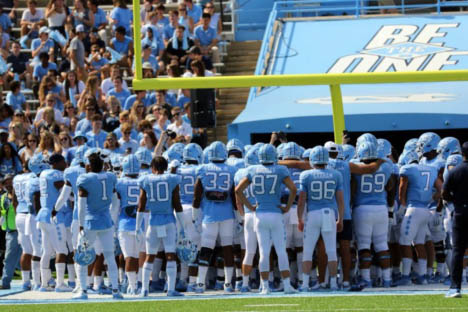
Finding an entry-level job after college
As you get your diploma at graduation, this terrifying question comes to your mind: “What am I going to do after this?” Every college graduate dreads the thought of not being offered a dream job right when he/she leaves school and that the past four years were a “waste of time.” While these thoughts may seem like the harsh truth in this tough economy, it should not become your reality.
Angelica Rodriguez, who worked as an HR Specialist at
“It’s a difficult time for everyone,” Rodriguez said. “Qualified folks with years of experience are unemployed and looking for work. But times like these are a great excuse to step up and rise above the competition. Perhaps you can go back to school or take some additional training that can help you stand out. Job hunting takes time and effort.
Tell everyone you know about the job you’re looking for or the company you want to work for. You never know where your next opportunity can come from. Be patient and be realistic.”
She also talked about the best places to go searching for jobs and what companies look for in a college graduate.
“Employers look for someone who can communicate well; speak clearly, articulate, etc. Someone who is presentable and someone who is eager and has a “can-do” attitude.
“The best place to look for jobs are niche sites that post jobs in your specific industry. For example, if you were looking for media jobs, you’d find a huge variety on MediaBistro.com. Another great place to start is with your school’s career center. Job boards like Monster and Careerbuilder are also great,” she said.
Rodriguez discussed how internships are not vital, but a wonderful stepping stone to getting the career you want.
“[Internships] are not crucial but very helpful,” she said. “If you don’t have previous work experience in your desired field, an internship will show a willingness to learn in that field and some knowledge in the area.”
Those who never had an internship and have already graduated may be reading this in panic. Take a breath and do not worry. Rodriguez said you just may have to accept a more-entry level position. We all have to start somewhere, even if it is at the bottom.
Rodriguez said the best time to look for a job is ideally between spring and summer, when most people switch their careers after they receive their bonuses and raises. According to Rodriguez, during the fall and winter there is less movement due to employees anticipating increases in their salary. Also, employees are less
likely to take risks around the holidays.
Rodriguez also gave information on jobs that have the most potential for salary growth.
“Jobs that are showing increasing growth and opportunity for 2011 include healthcare (physician’s assistants, physical therapists), IT (software engineers, system analysts) and media (editors, bloggers).
“The best career to look into [for yourself] is one where you contribute your skills and be fulfilled. No matter how much money you make, if you’re in a job that makes you unhappy you will end up switching careers,” Rodriguez said.
This advice is very true, so do not let the amount of money you make discourage you. Do what makes you happy and you will go far.
The University of Pennsylvania gives some tips on their Web site on entry-level jobs and how to handle the situation in such a tough economic time. They suggest remaining confident and positive because disappointments are bound to occur. Linking up with a friend who is also job hunting is a good way to find more opportunities and you will be helping each other in the process. Developing a portfolio is very important and having some sort of computer and communication skills are crucial due to the direction technology is heading in.
Hopefully these tips will lead you to the path of employment. Remember to stay positive, keep searching and do not give up.
Be sure to check out our lifestyle section so you’ll know what to wear for an interview while searching for a job.

















